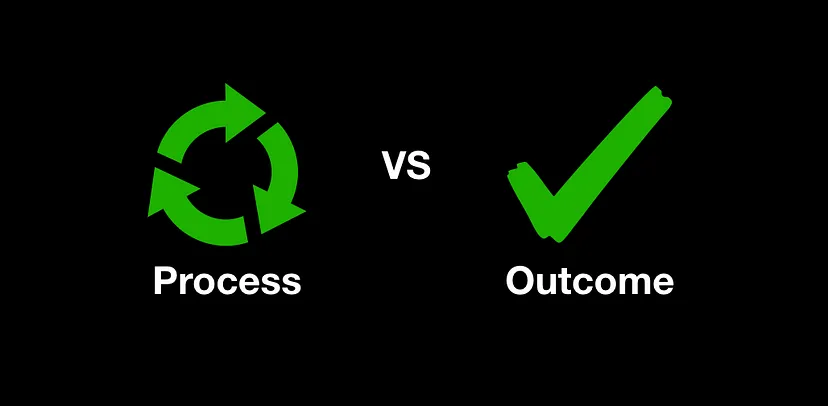 As a VC analyst, the initial months have been a whirlwind of learning and adaptation. I’ve realized that this industry, much like a rapidly flowing river, constantly shapes those within it. The swift currents of deal flow, meetings, and confidential decisions don’t just move you along; they carve new perspectives and refine your work ethic.
As a VC analyst, the initial months have been a whirlwind of learning and adaptation. I’ve realized that this industry, much like a rapidly flowing river, constantly shapes those within it. The swift currents of deal flow, meetings, and confidential decisions don’t just move you along; they carve new perspectives and refine your work ethic.
You start off as a rough stone, and over time, the relentless pace and challenging demands mold you into someone sharper and more resilient.
The Art of Observation: Seeing What’s Right in Front of You
At a VC fund, the majority of one’s time goes into evaluating startups across a wide range of industries. This process leads to a profound realization: we truly see things only when we have a need to look closely.
Think about walking through a forest. You might see the trees, the sunlight filtering through the leaves, and the ground covered in ferns. It’s a beautiful, general picture.

But when a biologist walks through the forest, it’s a completely different journey.
- He meticulously scans the forest floor for any anomaly, not for beauty.
- His eyes would be trained to spot a subtle color difference, a specific leaf shape, or an unusual growth pattern.
The need to identify a problem forces you to look at every detail, transforming a simple walk into a focused, analytical search.
This same thing happens when you work at a VC firm. When a new deal comes across, it’s not just another startup to look at; it could potentially be a market and/or a category creator. Thus, we need to dissect its business model, scrutinize its financial projections, and evaluate the team behind it. The need to understand more and make a recommendation, forces a level of scrutiny that would not be possible to maintain otherwise.
Beyond the Deck: Finding the Story Behind the Numbers
A key part of the analyst’s role is not just to evaluate the numbers but to understand the story behind them. A founder meeting is an opportunity to connect with the people who have poured their lives into building a company. It’s basically a crash course in active listening and empathetic questioning. Although questions about the market size or the burn rate are important, it’s crucial to understand the founder’s motivation, their resilience, and their vision for the future.
As part of my recent field visit for a potential investment opportunity in the healthcare industry, I gained a firsthand understanding of the business, which gave me a different perspective on the business. The visit helped me understand the little nuances involved in the business, which were not present in the deck. As I delved deeper into understanding the operations of the business, it came to my attention that:
- The business requires heavy upfront investment in labs, machines, and trained staff
and does not rely solely on technology platforms. Thus, the business model was more capital intensive than suggested in the pitch deck.
- Footfall was lower than expected considering the scale of the business, despite being located in a high-footfall, residential area, perhaps because of the presence of well-renowned peers in the surrounding area.
- Doctor availability is a challenge: we discovered that there was only one permanent doctor, with others on an ad-hoc basis.
- Operational challenge: long registration process leading to mismanaged front desk operations.
These problems are typically not highlighted or seen in the decks and can only be understood from hands-on experiences. This is what we look at when we are asking a founder for a product demo or a field visit.
Building Your Conviction and Embracing Disagreement
Within a VC firm, investment decisions are the result of rigorous debate and diverse perspectives and not isolated choices. As an analyst, my initial opinion is an important part of this process, but I need to have good conviction on it to be able to answer questions in meetings. This means backing up my conviction with relevant data, market insights, and a solid argument. This dynamic is both a challenge and a privilege:
- It encourages me to deepen my analysis, anticipate counterarguments, and articulate my reasoning with clarity and confidence.
- The team at Auxano fosters this environment, encouraging healthy discussion and constructive feedback to avoid “groupthink” and make more informed decisions.
Looking Ahead
My first two months as a VC analyst have been a powerful introduction to a fast-paced, intellectually demanding world. I am still learning to look for the stories behind the numbers, to see with purpose, and to find my voice in a room full of experienced investors.
The journey is just beginning, and I’m eager to embrace the challenges ahead, from deepening due diligence to building meaningful connections, knowing it’s only the tip of a vast iceberg.
Author
Tanmay Gajbhiye



